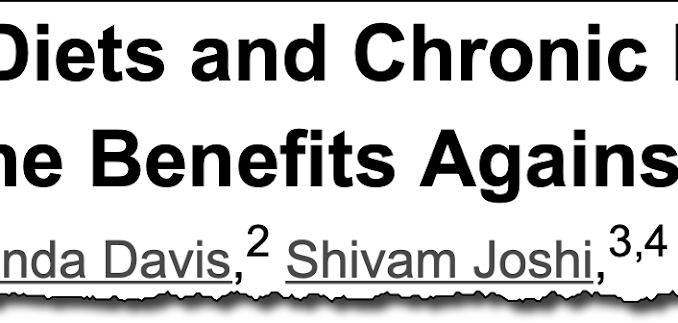
Share this with your carb-restricting friends!
Unsubscribe | Report as spam | Change email preferences
Why I won’t ever do keto
Hey, Matt Cook here, and I often study the benefits of eating carbs vs fats.
You may have heard of ketones — they are a type of fat which can be produced in the body.
Ketosis is a state whereby the body produces large amounts of these fats for use as fuel.
The keto diet refers to a high-fat, low carbohydrate diet which some people follow in order to get into the state of ketosis.
It’s an attractive prospect because ketosis can offer some immediate benefits.
You can lose a lot of weight in a short period. Many blood markers of metabolic disease seem to improve – at least initially.
But in the long term everything gets worse.
A recent review looked at the risks and benefits of high-fat ketogenic diets.
And the downsides may surprise you…
This review of mostly human research was carried out by the Physicians Committee for Responsible Medicine in Washington, DC. The paper was published in Frontiers in Nutrition.
The first use for ketogenic diets was in the treatment of intractable seizures.
Some people have seizures which cannot be immediately controlled by treatments – but ketogenic diets can often stop the seizures.
Many proponents of the keto diet believe that these people stayed on the keto diet for life…
…but physicians generally used this tactic to get control of the seizures while other treatments have time to work.
It was rarely, if ever, a long term solution.
In recent years, these high-fat low-carb diets have been promoted as the solution to modern metabolic diseases.
“Very-low-carbohydrate ketogenic diets have been used to reduce seizure frequency and more recently have been promoted for a variety of health conditions, including obesity, diabetes, and liver disease.”
There is no doubt that the keto diet can provide significant short-term weight loss…
…though much of this is due to your body depleting sugar stored in the tissues…
…and the water weight associated with that stored sugar in the form of glycogen.
The problem is that the short-term benefits of the keto diet never last.
“Ketogenic diets may provide short-term improvement and aid in symptom management for some chronic diseases.”
Given the massive promotion of these diets over the last 10 years…
…these physicians decided to carry out a review looking at the benefits and risks outlined in human research.
There are some pretty extreme side-effects during the first few weeks of the diet.
“The most restrictive ketogenic diets used for epilepsy can cause fatigue, headache, nausea, constipation, hypoglycemia, and acidosis, especially within the first few days to weeks of following the diet.”
Most people are willing to tolerate this in order to reap the benefits which are attributed to the keto diet. No pain, no gain, right?
And the promoters of high-fat diets aren’t really hiding the fact that there is some initial discomfort.
Though the short term effects are often understated, as…
“Dehydration, hepatitis, pancreatitis, hypertriglyceridemia, hyperuricemia, hypercholesterolemia, hypomagnesemia, and hyponatremia can also occur.”
But I think that many people are unaware of the major long-term adverse health effects of high-fat, low-carb diets.
Here are some of the long-term health effects which have been identified in human research.
“Longer-term effects can include decreased bone mineral density, kidney stones, cardiomyopathy, anemia, and neuropathy of the optic nerve.”
Most people can’t sustain the keto diet for very long.
And people eating a low carbohydrate diet such as this are at greater risk of dying from all causes.
“Ketogenic diets have low long-term tolerability and have also been associated with an increased risk of all-cause mortality.”
Indeed, many of the foods people tend to eat on the keto diet are linked to the most common chronic diseases.
“Foods and dietary components that typically increase on ketogenic diets are linked to an increased risk of chronic kidney disease, cardiovascular disease, cancer, diabetes, and Alzheimer’s disease.”
The researchers concluded that there are more risks and benefits to keto diets for most people – and I agree.
“Current evidence suggests that for most individuals, the risks of such diets outweigh the benefits.”
In fact, when you take a deep dive into the research on nutrition, high-carbohydrate diets are clearly superior for human health.


